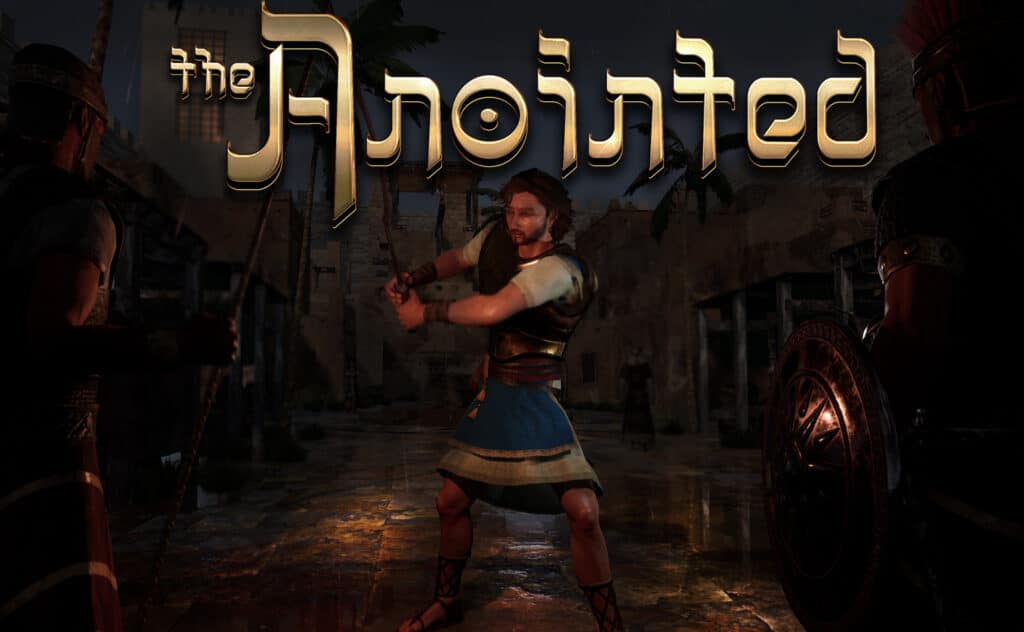
Do we ever consider that God might call us to something counterintuitive?
We often assume God only asks us to do things that make sense to us. It might be worth considering that God certainly did some counterintuitive stuff. He used a peasant family’s willingness to surrender to evangelize all of humanity. He used an underdeveloped nation to begin embodying his character among the nations. He used an unimpressive shepherd boy to be the king after his own heart. When the Philistines were terrorizing Keilah, it seemed counterintuitive for David, along with his men, to move against the Philistines. Yet God did all these things. However, we must ask what happens when David does not align with God’s mission. Keilah would not have been saved. Israel might not have survived the coming decades of foreign attackers. What about when the Church hesitates to align with God’s mission? Perhaps in a world where it seems counterintuitive to take the Gospel into the video game industry, we need to ask if we are aligning ourselves with the movement of God.
For centuries, the Church has been aligning itself. The counterintuitive truth is that the spread of the Gospel is inherently linked to the Church’s embracing of technology. Consider the Gospels. These are accounts, yes, but in a very physical way, written words on a page about the life of Jesus “so that you may believe that Jesus is Christ, the Son of God and that by believing you may have life in his name.”(John 20:31) The written word is a piece of technology. The authors of the Gospels were using technology to record what they saw. Then, our willingness to use technology ensures that in the 21st century, we can read about the life and person of Jesus Christ. But this was not the only time technology was used to propagate the Gospel.
In the days following Pentecost, the earliest Christians found themselves in a world dominated by the Roman Empire. While they would experience considerable persecution, the Great Commission greatly benefited from the existence of roads. Roman roads were well-built, secure, and mapped out. In the 1st century, the Roman road functioned as an information highway. The early Christians used them to rapidly spread the Gospel throughout the Roman Empire. By the end of the 4th century, Christianity had spread to every corner of the Roman Empire, having a presence on nearly every continent in the eastern hemisphere. In large part, this is thanks to the development and church acceptance of the technology of roads. Thankfully, in the early centuries of the Gospel, the Church gladly embraced technology.
In the 1400s, Johannes Gutenberg developed a machine with a reusable block type to print words on a page. Until then, when someone wanted to make a copy of something such as the Bible, monks had to painstakingly copy it by hand, sometimes taking decades for one copy. With the advent of the printing press, anything could be copied relatively quickly. This allowed for the Bible to become highly accessible to the general population. As a side effect, the populace began to desire translations of the Bible in their native language, thereby launching the grand tradition of Bible translation. On another note, this also allowed theologians to start printing their ideas, giving birth to the Protestant Reformation. Therefore, with the development of one piece of technology, the printing press, all of a sudden, Christians lived in a world where the Bible was in their language and more accessible. In the 1400-1500s, the advent and acceptance of new technology led to the propagation of the Great Commission.
In the 21st century, we live in a world marked by technological development, the internet, video gaming, and more. The technologies created one day are advancing to new levels the next day. Will Christians in 200 years be able to be thankful that we as a Church adopted technology for the propagation of the Gospel? As it currently stands, the answer is no. The internet is seen as a place where children are exposed to un-Christian ideas. Well-meaning, misinformed educators preach that video games are childish and cause children to be violent. Often, technology is feared as something that will take people away from the Church. We must thank God every day that the writers of the Bible did not fear technology but embraced it. Evil does not arise from our technology but from within our hearts. The prophet Jeremiah was right when he said that the heart is deceitful and desperately wicked, so we may not trust it when it tells us that technology is evil.
In the shadow of Keliah, David and his men were experiencing fear and uncertainty about attacking a superior force. Yet they did not give in to their fear. They recognized they were part of a greater story and joined God in his mission. It might be worthwhile for the Church to consider the fear it feels at the prospect of taking the Gospel into the world of technology. The calling to the Church is to join God in his mission. Embrace technology to spread the Gospel and see the Great Commission accomplished. Let us joyfully join God in the story he is writing on all creation!
In the name of the Father, Son, and Holy Spirit, Amen!
Contributing Author: Rev. Bradley Edwards
Please subscribe or send us feedback to hear more on this topic.

